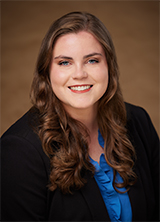In Washington, Can a Worker Successfully Pursue an Occupational Disease Condition under an Open Industrial Injury Claim?
 When a claim has been accepted, and compensation has been paid, the self-insurer is required to send the Department the SIF-2, the claim allowance request form, the SIF-5, and an explanation and documentation used to determine the date of manifestation for occupational disease claims. At that point, the Department will issue an allowance order based on an injury or occupational disease claim. What happens when a worker has an open industrial injury claim for a shoulder contusion resulting from a fall at work, and then is later diagnosed with degenerative joint disease that arose naturally and proximately out of the worker’s employment? Should the self-insured employer allow the degenerative joint disease under the original claim that was allowed for the specific fall and injury?
When a claim has been accepted, and compensation has been paid, the self-insurer is required to send the Department the SIF-2, the claim allowance request form, the SIF-5, and an explanation and documentation used to determine the date of manifestation for occupational disease claims. At that point, the Department will issue an allowance order based on an injury or occupational disease claim. What happens when a worker has an open industrial injury claim for a shoulder contusion resulting from a fall at work, and then is later diagnosed with degenerative joint disease that arose naturally and proximately out of the worker’s employment? Should the self-insured employer allow the degenerative joint disease under the original claim that was allowed for the specific fall and injury?
In May of 2022, the Board of Industrial Insurance Appeals issued a significant decision regarding this very issue. In In re Pedro C. Ceja, Mr. Ceja was injured when he slipped and hit his right knee and the Department issued an order allowing the claim as an industrial injury. The Department also issued an order denying responsibility for right knee osteoarthritis that providers related to kneeling on concrete for years in his employment. The Department issued an order closing the claim and Mr. Ceja appealed seeking allowance of his right knee osteoarthritis.
At trial, Mr. Ceja did not present expert testimony that the injury caused or aggravated his arthritis. Rather, his experts testified that his arthritis conditions arose from the distinctive conditions of employment. The Industrial Insurance Act allows claims for either injuries or occupational diseases. As such, newly contended conditions in an open industrial injury claim need to be assessed for compensability based on whether the injury caused the condition, not whether the conditions of employment caused the condition.
Since the evidence presented by Mr. Ceja supported the argument that the osteoarthritis was due to conditions of employment, and the claim was allowed for the specific injury when Mr. Ceja slipped and injured his knee, the Board affirmed the decisions to deny responsibility of the osteoarthritis and to close the claim. Moreover, per Marley v. Department of Labor & Industries 125 Wn.2d 533 (1994), if a party to a claim believes the Department erred in one of its decisions, that party must appeal the adverse ruling. The failure to appeal a Department order turns the order into a final adjudication preventing any re-argument of the same claim.
Mr. Ceja did not timely appeal the allowance order that categorized the claim as an industrial injury. Accordingly, his argument that his claim should have been allowed as an occupational disease claim is untimely and moot based on the final and binding allowance order. An un-appealed final order from the Department precludes both parties from rearguing the same claim.
Notably, the Board emphasized that Mr. Ceja could simply file a claim for an occupational disease for the right knee osteoarthritis. The Ceja decision makes clear that an injured worker who has an open injury claim has nothing stopping them from filing a new, additional, claim for an occupational disease condition. Mr. Ceja could have filed a new claim and requested the same relief from the Department that he requested in his appeal and the Department could determine to allow or deny that claim.
Conclusively, where an injured worker appeals a closure of an injury claim where the order allowing the claim as an industrial injury is final, the worker is barred from seeking relief for conditions resulting from an occupational disease for which no claim has been filed or allowed. The injured worker should be encouraged to simply file a new claim for an occupational disease rather than fight for compensability under an injury claim.
If you have any questions or would like to discuss how to best approach a scenario where the worker raises a new occupational disease diagnosis in an industrial injury claim, please feel free to contact me at mbrooks@sbhlegal.com, or 971.867.2733.
Posted by McKenzie Brooks.

